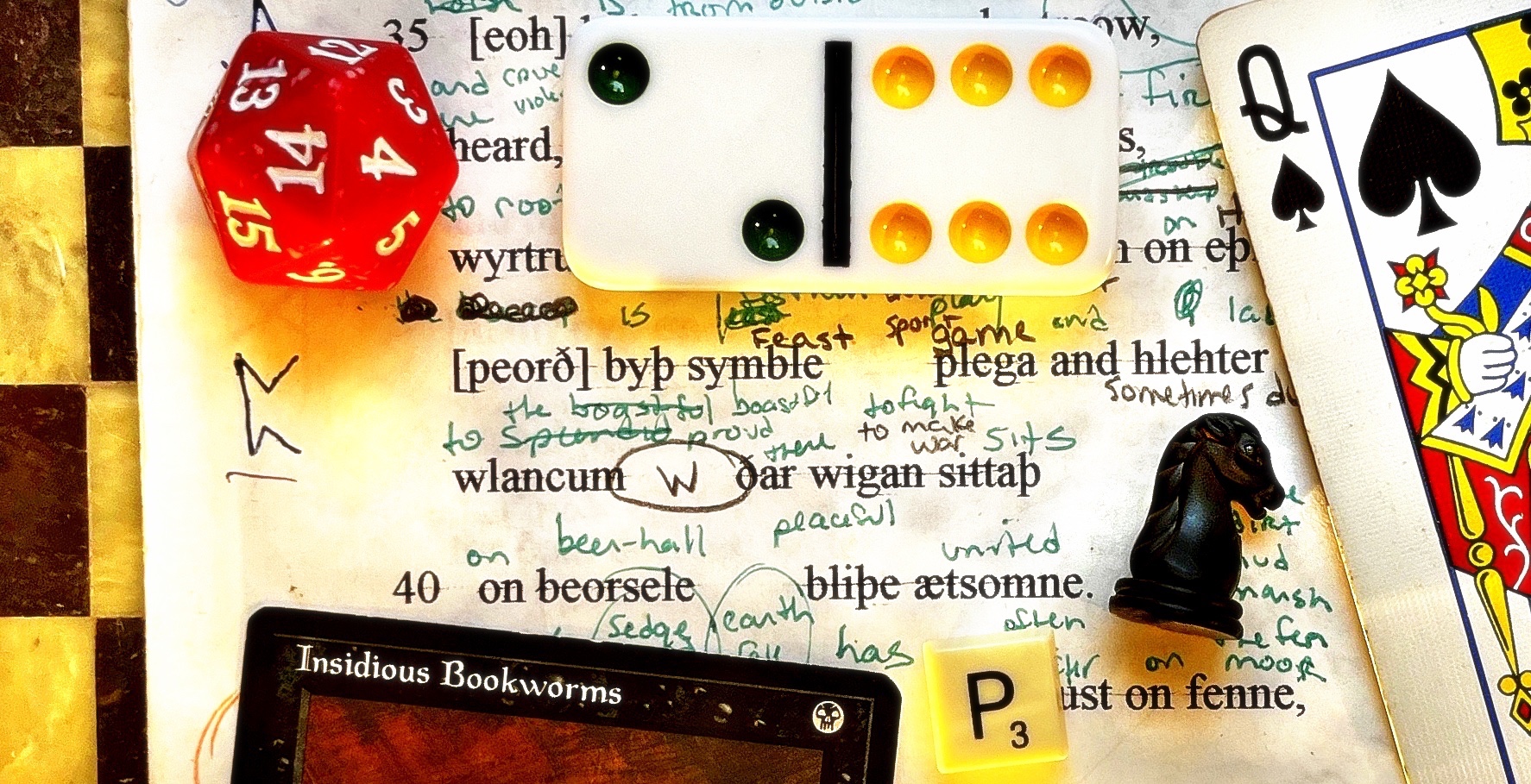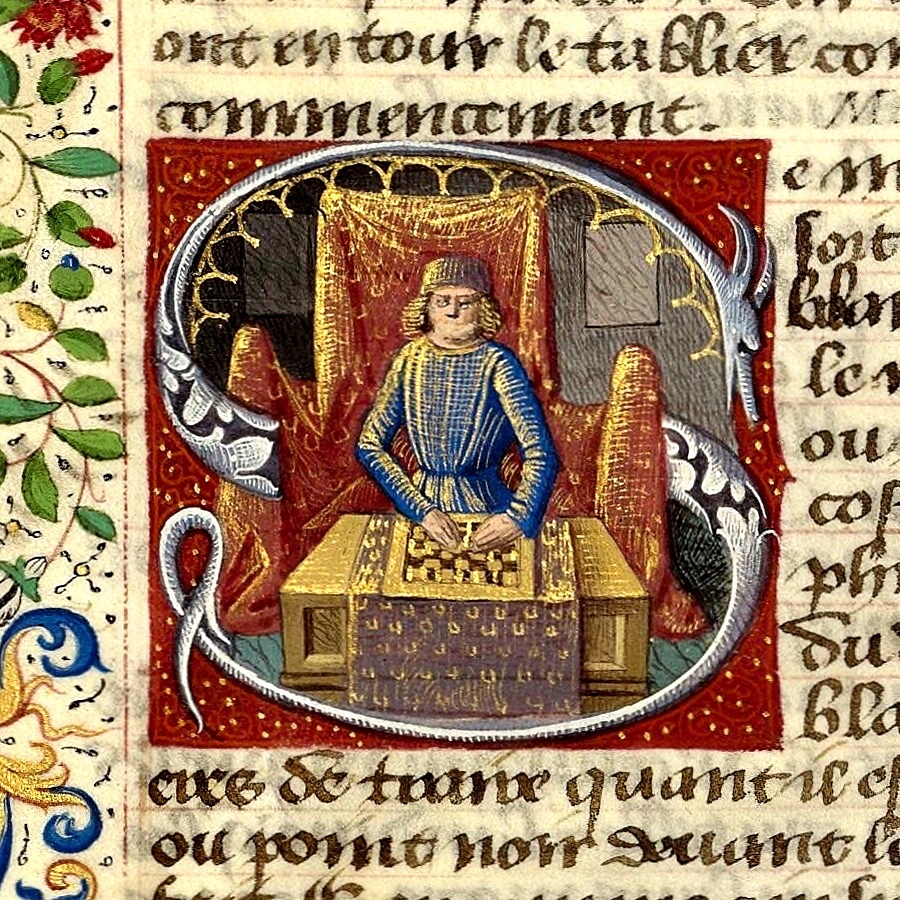 Nobody knows what this is for certain. The only time we ever see the word peorð in Old English is in lists of rune names, so we only know what the Rune Poem riddle says, that it is what it is. We don’t even have all the clues we need to identify it. The Peorð stanza has a hole right in its very center. In the first half of the second line a word most likely starting with W, so it can alliterate with wlancum, is missing. What? Why? Was it at the edge of a crumbling page? Did the vellum dry and split through the word? Did a worm eat it? Did a scribe forget to copy it? The Rune Poem exists in only one copy of a manuscript that tragically burned in a fire, so we don’t know. We know the missing word is not wlancum, the dative plural of proud (to the proud, for the proud). Words don’t repeat side by side in the Rune Poem.
Nobody knows what this is for certain. The only time we ever see the word peorð in Old English is in lists of rune names, so we only know what the Rune Poem riddle says, that it is what it is. We don’t even have all the clues we need to identify it. The Peorð stanza has a hole right in its very center. In the first half of the second line a word most likely starting with W, so it can alliterate with wlancum, is missing. What? Why? Was it at the edge of a crumbling page? Did the vellum dry and split through the word? Did a worm eat it? Did a scribe forget to copy it? The Rune Poem exists in only one copy of a manuscript that tragically burned in a fire, so we don’t know. We know the missing word is not wlancum, the dative plural of proud (to the proud, for the proud). Words don’t repeat side by side in the Rune Poem.
The stanza gives fantastic clues, so we can know that this is a plega, a game, and a fun one because it causes hlehter, laughter. They played it during festival times, during feasts. People thought of this game as a wigan, a fight, a battle, but it probably wasn’t an active sport as they did it sittaþ, sitting down. They felt bliþe (blithe) playing this game too. It was a peaceful battle on beorsele, in the beerhall. Serious stuff, but very cheerful!



